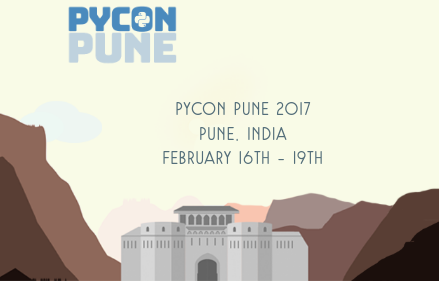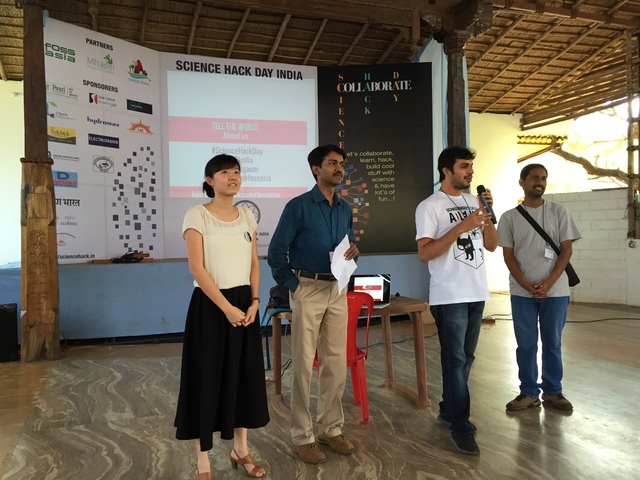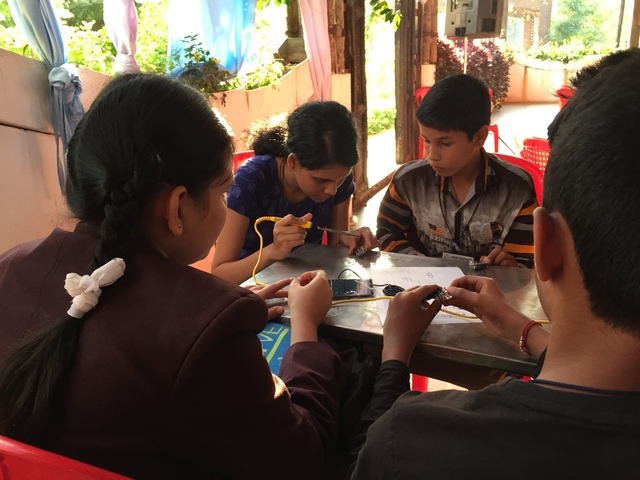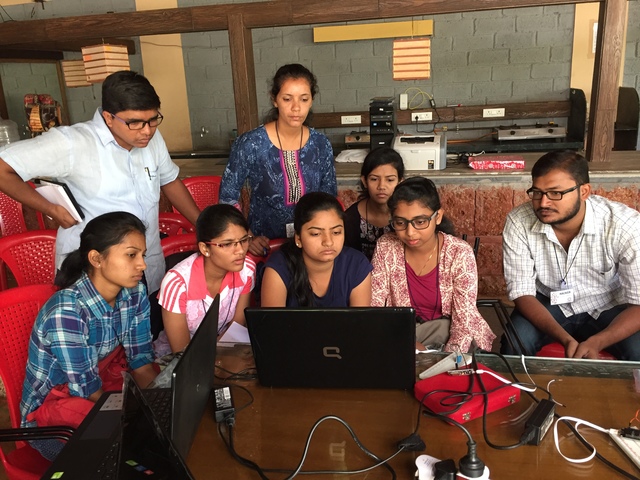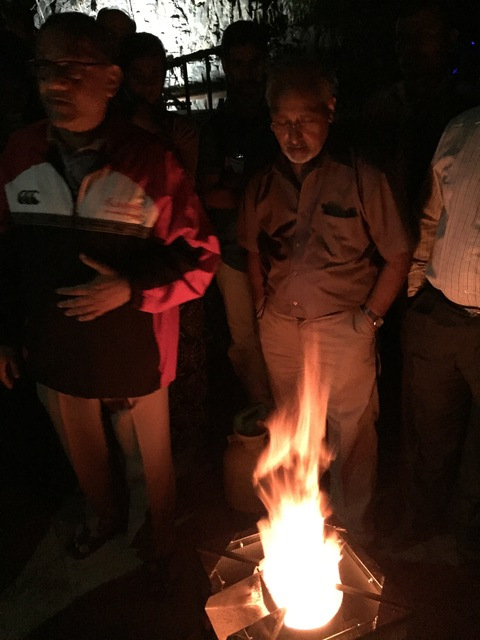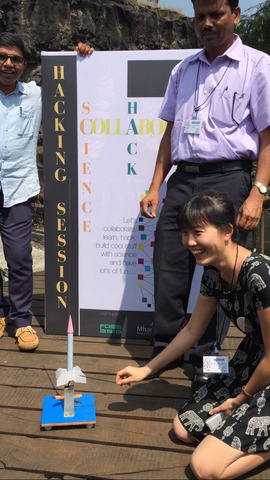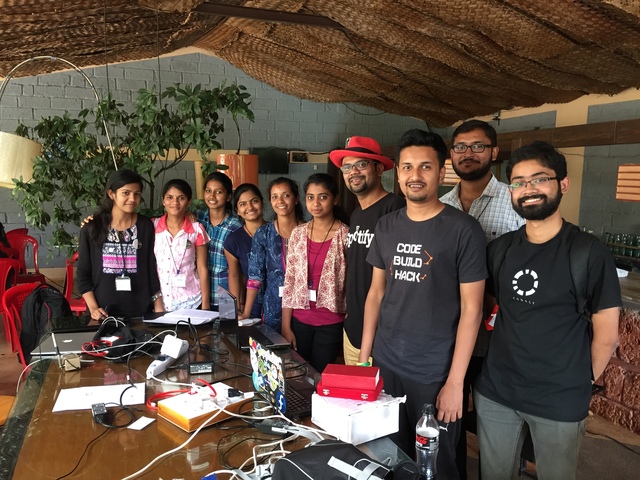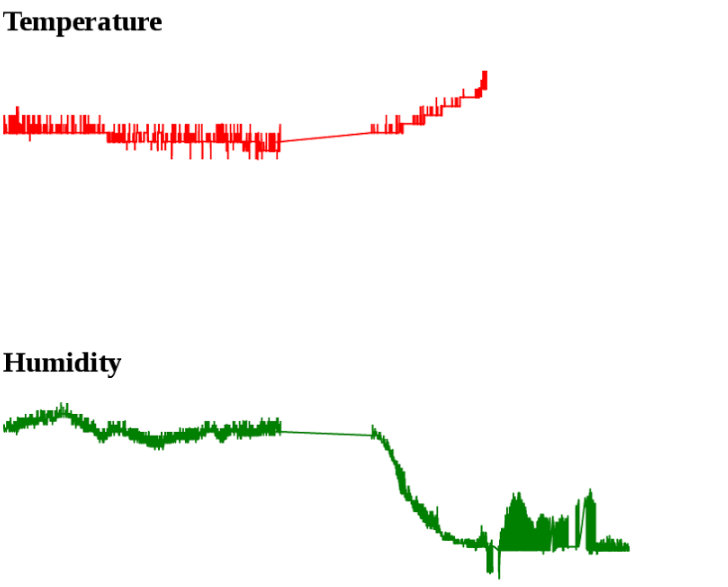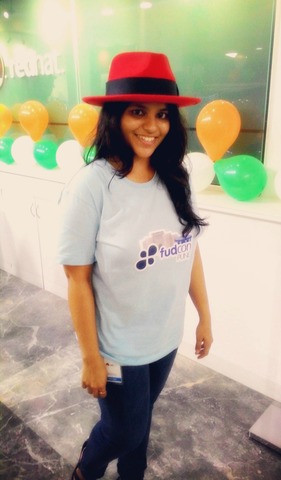In 2017 dgplug summer training will be
happening for the 10th time. Let me tell you honestly, I had no clue that we
will reach here when I started this back in 2008. The community gathered
together, and we somehow managed to continue. In case, you do not know about
this training, dgplug summer training is a 3 months long
online IRC based course where we help people to become contributors to upstream
projects. The sessions start around 6:30PM IST, and continues till 9PM (or
sometimes till very late at night) for 3 months. You can read the logs of the
sessions here.
The beginning
I remember looking at how people were trying to apply for Google Summer Code
back in 2008, but many of them never had minimum experience with software
development in Open Source world. dgplug started in 2004, and I think our motto
“Learn yourself, teach others” is still as relevant now, as it was back in
2004. I was thinking about one online training where we can teach the basics of
using Linux, and also basics of programming in Linux. How to create, and submit
patches etc. I chose to use IRC as the place of the training because of
bandwidth issue. Looking at how we conducted regular Fedora meetings on IRC, I
was sure it would be doable. Of course there were many self doubts, too many
open questions for which I never had any answer. When I shared this idea in
different mailing lists, and asked for volunteers, Shakthi
Kannan (irc: mbuf) also jumped in to mentor in the
training. This gave me some hope. We had around 10+ participants in the first
year of this training. Mailing lists guidelines, and how to communicate
online were important from the beginning. Python was my primary language back
then, and we choose to use that in the training too. With help from Prasad J.
Pandit (irc: pjp) we had sessions on programming using C. But we found out that
debugging segfaults over IRC was just not possible. We can try to do that if
there were 2 or 3 people, but for a large group it was just not possible. As I
mentioned earlier, contribution is the keyword for this training, we had
other sessions than programming from the very first year. Máirín
Duffy took a session on Fedora Arts, Paul
Frields (then Fedora Project leader) took a session
on Documentation. Debarshi took the
sessions on shell scripting, and few of our sessions went up to 2AM (starting
at 6pm).
Continuing & experimenting
Many participants from the 2008 session were regulars in the IRC channel. A few
of them were already contributing in upstream projects. We decided to continue
with the training. The number of participants grew from 10 to 170+ (in 2016).
We did various kinds of experiments in between these years. Many of our ideas
failed. Many ideas have gone through iterations until we found what works
better. Below are few ideas we found difficult to implement in a training like
this:
- Teaching C programming over IRC is not an easy task.
- We have to be regular in the sessions, start at the right hours every day. Changing session timings are bad.
- Do not give any longer break than 5 days. Participant rate will drop if there are no sessions for more than 5 days.
- Doing video session is difficult (even in 2016).
Lessons learned (the good points)
Start from scratch
Every year we start from scratch. There are always many participants who does
not know much of command line tools, or how to reply inline to a mail in the
mailing list. This is why we start from communication tools, basic shell
commands, and using editors (we teach Vim). From there the sessions slowly
start becoming more intense.
IRC works well on low bandwidth
IRC is still the best medium for a training where people are joining in from
all over the world. It works in 2G connection too. Breaking the first entry
barrier is difficult, but once we breach that, people generally stays back on
the channels.
Stay in touch
Stay in touch with the participants even after the course is finished. Most of
the regular participants in the #dgplug channel are actual ex-participants of
the summer training. Some were trainees, some were trainers. Talking about
other things in life is important to increase the participation in IRC.
Have documentation
We were slow in this point. Even though from the first year we had logs of each
session, we never had one single place for the participants to learn from. Now
we maintain a Sphinx docs. It is always nice to be able to point people to one
link from where they can start.
Meet in real world
Every year we meet during PyCon India. This meeting is known as staircase
meeting as we used to block most of the staircase at the venue in Bangalore.
Meeting people face to face, talking to them in real life, sharing food &
thoughts help to break many hidden barriers. It is true that not all of us can
meet in one place, but we try to meet at least once every year. In 2017 we will
be meeting during PyCon Pune in February in Pune,
then once again in PyCon India in Delhi.
Give them hope, give them examples
Other than our regular sessions, we also get sessions from other known upstream
contributors in various projects. They talk about how they have started their
journey in Open Source world. Sometimes they sessions on their field. We had
sessions from documentation, art work, experiences of past participants,
Creative Commons licenses, leaders from various communities. This year Python
creator Guido Van Rossum also joined in, and took a very interactive session.
Automate as much as possible
We now have a bot which helps the
trainer during the sessions. This helps to reduce chaos during the sessions. As
we all know the nature of IRC, it is very common that 10 people can try to talk
at the same time. Stopping that was a big win for us. We still do not upload
the logs automatically, as we go through the logs once manually before
uploading.
Have a group of volunteers whom the community can trust
Most of the volunteers of dgplug are ex-participants of this summer training.
They stayed back in the channel after their training is over. They help people
almost 24/7 (depending their availability). There are the people whom we all
trust. They become leaders by their own effort, no one comes and announces new
leaders. Delegation of various work is important, getting fresh blood in the
volunteer pool is very important. We constantly look for new volunteers. But at
the same time you will need some people who can come in at the time of any
emergency (with authority).
Enforce some rules
Rules are important for any community, call it Code of Conduct, or something
else. But without these maintained rules, any community can get into chaos.
Enforce these rules. We generally force people to write in full English words
all the time (instead of sms language). The participants do pull legs of anyone
who types u or r in the IRC channel. We also try to push people for inline
reply than top posting in the mailing list.
Solve real life problem
Do not try to stay in only examples from books while teaching something. Always
try to solve problems which are closer to the hearts of the participants. These
solutions will give them much more encouragement than anything else. It can as
small as finding photos in their computer, or building a full scale application
to manage one’s video pool. We try to use Python to solve many of these issues,
as we have experienced Python programmers in the channel . Python3 is our
default language to do anything on the sessions.
Outcome of the training
I think we are the highest concentration of upstream contributors in one
community in India. We had participants from Singapore, South Korea, to
Afghanistan, Pakistan, to Nigeria (a big shoutout to Tosin), to many parts in
US and Canada. We had school teachers, college students, lawyers, sys-admins,
housewives, school students, music students, participants from various
backgrounds in the last 10 years. We have companies personally inquiring about
ex-participants before hiring them. Many of the participants are now my
colleague in Red Hat. We have people in the channel who are willing to help
anyone, everyone learns from everyone else. People are part many other
communities, but #dgplug binds us all.
